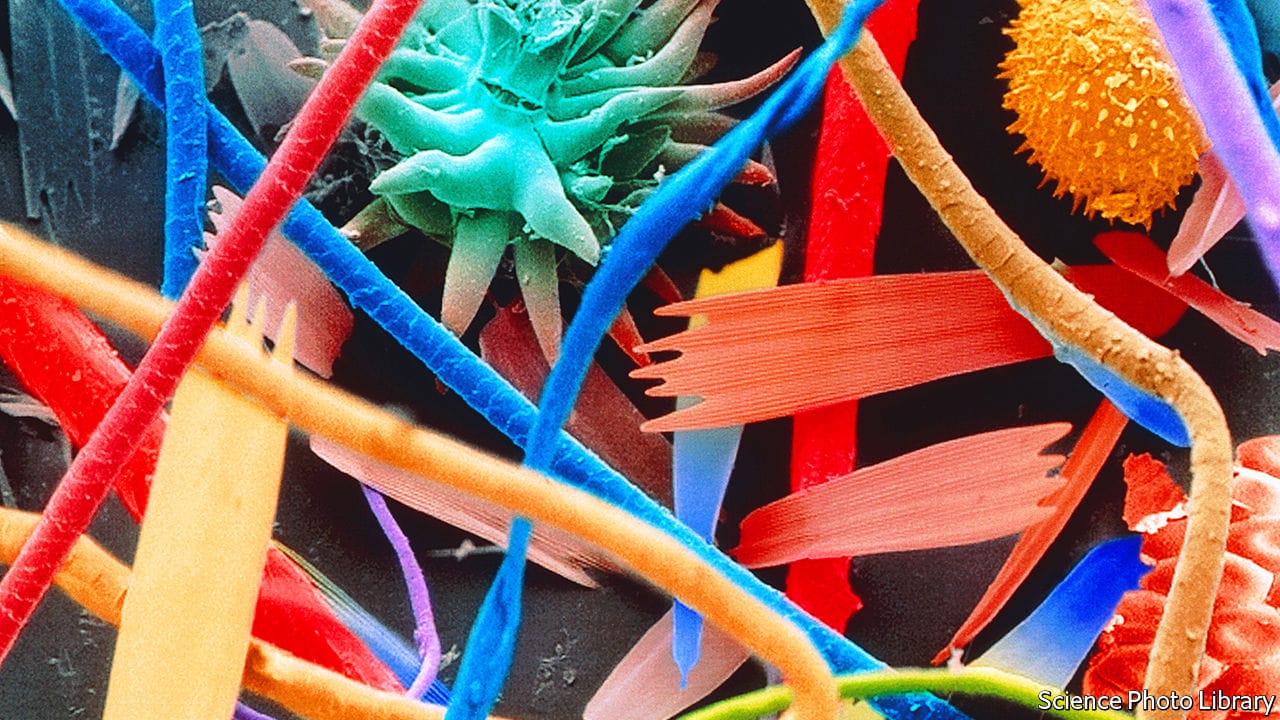- by
- 07 24, 2024
-

-
-
Loading

Loading

PLASTICS ARE man-made materials that are unnatural to this world, but that does not stop the natural world from interacting with them. Indeed, dozens of studies show that when plastics get into the sea many ocean-dwelling microorganisms aggressively colonise them. This might help break plastics down, but these oceanic colonies are also hotbeds of antibiotic-resistant genes. Now, it seems, something similar might be going on in the dark recesses of your home.Lei Wang suspected as much, and along with his colleagues at Nankai University in Tianjin, China, set out to gather the necessary evidence. Their search began at an apartment building in Tianjin. The plastics Dr Wang was concerned about are the tiny bits that break away from synthetic fibres, like polyester and nylon, commonly found in clothing and other textiles. The microplastics then accumulate around the home as dust. He reasoned that if these particles were being colonised by bacteria then they too might be harbouring antibiotic-resistant genes.